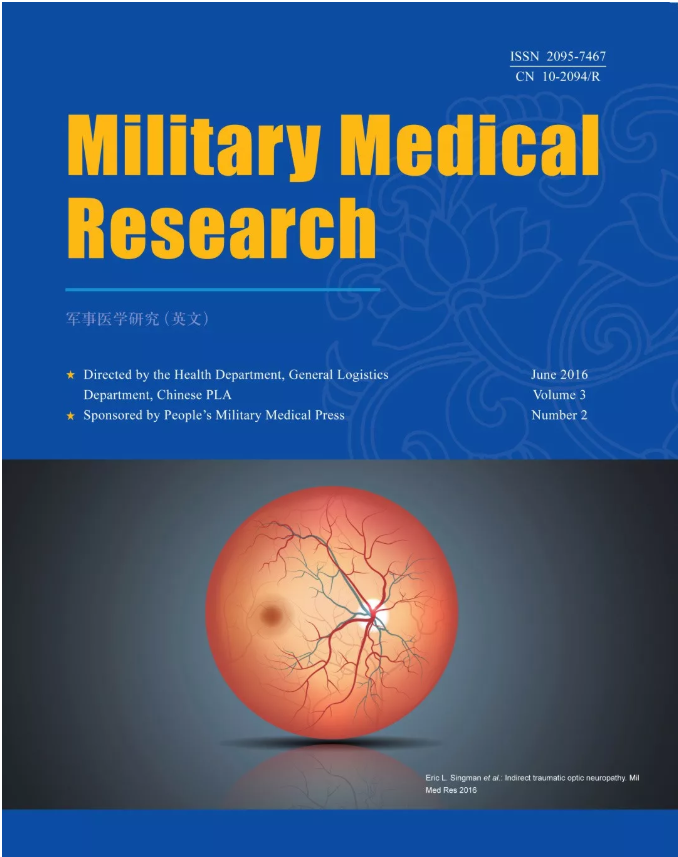ADP 依赖性葡萄糖激酶控制前列腺癌进展过程中的代谢适应性
IF 16.7
2区 医学
Q1 MEDICINE, GENERAL & INTERNAL
引用次数: 0
摘要
细胞新陈代谢在肿瘤进展中起着关键作用,针对癌症的新陈代谢可能会有效杀死癌细胞。我们旨在研究六磷酸酶在前列腺癌(PCa)中的作用,并确定治疗PCa的关键靶点。我们利用癌症基因组图谱(TCGA)数据库、在线工具和临床样本来评估ADP依赖性葡萄糖激酶(ADPGK)在PCa中的表达和预后作用。ADPGK的表达对PCa细胞恶性表型的影响已在体外和体内得到验证。研究人员进行了定量蛋白质组学、代谢组学、细胞外酸化率(ECAR)和耗氧量(OCR)测试,以评估ADPGK对PCa代谢的影响。研究人员通过ADPGK过表达和敲除、共免疫沉淀(Co-IP)、ECAR分析和细胞计数试剂盒-8(CCK-8)检测等方法探讨了其潜在机制。在前列腺癌(PRAD)中,ADPGK是唯一一种既上调又能预测总生存期(OS)恶化的葡萄糖激酶。临床样本分析表明,与非前列腺癌组织相比,ADPGK在前列腺癌组织中明显上调。ADPGK 的高表达预示着更差的生存结果,并且 ADPGK 是生化复发的独立因素。体外和体内实验表明,ADPGK过表达可促进PCa细胞的增殖和迁移,而抑制ADPGK可抑制恶性表型。代谢组学、蛋白质组学以及ECAR和OCR测试表明,ADPGK能显著加速PCa中的糖酵解。从机理上讲,ADPGK与醛缩酶C(ALDOC)结合,通过AMP激活蛋白激酶(AMPK)磷酸化促进糖酵解。ALDOC与ADPGK呈正相关,而ALDOC的高表达与PCa的生存预后较差有关。总之,ADPGK是PCa进展的驱动因素,其高表达导致PCa患者预后不良。ADPGK通过激活ALDOC-AMPK信号转导加速PCa糖酵解和进展,这表明ADPGK可能是PCa治疗和预后评估的有效靶点和标志物。本文章由计算机程序翻译,如有差异,请以英文原文为准。
ADP-dependent glucokinase controls metabolic fitness in prostate cancer progression
Cell metabolism plays a pivotal role in tumor progression, and targeting cancer metabolism might effectively kill cancer cells. We aimed to investigate the role of hexokinases in prostate cancer (PCa) and identify a crucial target for PCa treatment. The Cancer Genome Atlas (TCGA) database, online tools and clinical samples were used to assess the expression and prognostic role of ADP-dependent glucokinase (ADPGK) in PCa. The effect of ADPGK expression on PCa cell malignant phenotypes was validated in vitro and in vivo. Quantitative proteomics, metabolomics, and extracellular acidification rate (ECAR) and oxygen consumption rate (OCR) tests were performed to evaluate the impact of ADPGK on PCa metabolism. The underlying mechanisms were explored through ADPGK overexpression and knockdown, co-immunoprecipitation (Co-IP), ECAR analysis and cell counting kit-8 (CCK-8) assays. ADPGK was the only glucokinase that was both upregulated and predicted worse overall survival (OS) in prostate adenocarcinoma (PRAD). Clinical sample analysis demonstrated that ADPGK was markedly upregulated in PCa tissues vs. non-PCa tissues. High ADPGK expression indicates worse survival outcomes, and ADPGK serves as an independent factor of biochemical recurrence. In vitro and in vivo experiments showed that ADPGK overexpression promoted PCa cell proliferation and migration, and ADPGK inhibition suppressed malignant phenotypes. Metabolomics, proteomics, and ECAR and OCR tests revealed that ADPGK significantly accelerated glycolysis in PCa. Mechanistically, ADPGK binds aldolase C (ALDOC) to promote glycolysis via AMP-activated protein kinase (AMPK) phosphorylation. ALDOC was positively correlated with ADPGK, and high ALDOC expression was associated with worse survival outcomes in PCa. In summary, ADPGK is a driving factor in PCa progression, and its high expression contributes to a poor prognosis in PCa patients. ADPGK accelerates PCa glycolysis and progression by activating ALDOC-AMPK signaling, suggesting that ADPGK might be an effective target and marker for PCa treatment and prognosis evaluation.
求助全文
通过发布文献求助,成功后即可免费获取论文全文。
去求助
来源期刊

Military Medical Research
Medicine-General Medicine
CiteScore
38.40
自引率
2.80%
发文量
485
审稿时长
8 weeks
期刊介绍:
Military Medical Research is an open-access, peer-reviewed journal that aims to share the most up-to-date evidence and innovative discoveries in a wide range of fields, including basic and clinical sciences, translational research, precision medicine, emerging interdisciplinary subjects, and advanced technologies. Our primary focus is on modern military medicine; however, we also encourage submissions from other related areas. This includes, but is not limited to, basic medical research with the potential for translation into practice, as well as clinical research that could impact medical care both in times of warfare and during peacetime military operations.
 求助内容:
求助内容: 应助结果提醒方式:
应助结果提醒方式:


